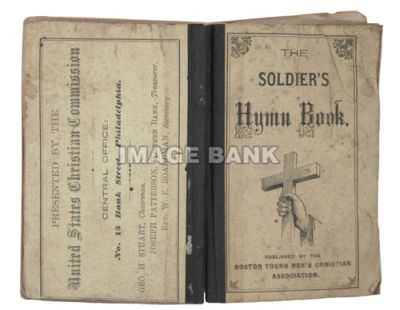 Charles Henry Rowe (born 1834) of Gloucester, Maine, having graduated from Newton Theological Institution earlier this year, is today ordained into the Baptist ministry. Upon his ordination, he assumes his first pastorate at Holyoke Baptist Church in Holyoke, Massachusetts. One year later, he returns to his home state, accepting a call to pastor the First Baptist Church of Augusta, Maine. Then, three years after the Civil War began, Rowe resigns the pastorate to serve as a Union Army chaplain. Surviving the war, Rowe returns to pastoring in 1866 in the pulpit of Stoughton Street Baptist Church in Boston. Unable or unwilling to stay in one church very long, from 1871 forward Rowe serves in a succession of churches in Massachusetts and Connecticut.
Charles Henry Rowe (born 1834) of Gloucester, Maine, having graduated from Newton Theological Institution earlier this year, is today ordained into the Baptist ministry. Upon his ordination, he assumes his first pastorate at Holyoke Baptist Church in Holyoke, Massachusetts. One year later, he returns to his home state, accepting a call to pastor the First Baptist Church of Augusta, Maine. Then, three years after the Civil War began, Rowe resigns the pastorate to serve as a Union Army chaplain. Surviving the war, Rowe returns to pastoring in 1866 in the pulpit of Stoughton Street Baptist Church in Boston. Unable or unwilling to stay in one church very long, from 1871 forward Rowe serves in a succession of churches in Massachusetts and Connecticut.
Charles Rowe, however, is not primarily remembered in Baptist life as a pastor. Rather, he earns acclaim as a hymn writer:
From his mother, a woman of superior mind and deep devotional spirit, he inherited a fine literary taste and a special love for hymns sweet with the perfume of gospel grace and truth. Beside many contributions to the religious press, he has written several hymns and poems that have been widely circulated.
One of these, ” At Rest,” is found in a volume of ” Poems on the Death of President Garfield,” published by Moses King, Cambridge, 1881. In 1886, the following hymn appeared in the Watchman, and has since been included in Rev. W. E. Penn’s “Harvest Bells, No. 1,” published by the John Church Company, Cincinnati, Ohio.
Nearer, O Christ, to thee,
Nearer to thee;
In love and by thy cross
Thou drawest me;
While all my prayer shall be,
Nearer, O Christ, to thee,
Nearer to thee.In the wide wilderness
Of sin astray,
A wanderer far from God,
Lost in the way;
But by thy grace I’ll be
Nearer, O Christ, to thee,
Nearer to thee.By thee the way appears
That leads to heaven,
And in the gospel word
Is mercy given,
Thy love it calleth me
Nearer, O Christ, to thee,
Nearer to thee.Redeemed by precious blood
From sin and death,
The Spirit’s quickening power A living breath,
By faith I live to be
Nearer, O Christ, to thee,
Nearer to thee.And when from earthly care
Thou bidst me come,
And in thy presence find
My heavenly home,There shall I ever be
Nearer, O Christ, to thee,
Nearer to thee.
Music plays an important role in Baptist life during the war. As the war progresses, hymns are sung in the camps, comforting soldiers living with the specter of death, assuring them of God’s presence and reminding them of the homes they left behind.
Source: Henry Sweetser Barrage, Baptist Hymn Writers and Their Hymns. Portland, Maine: Brown Thurston, 1888, pp. 469-470 (link); see also George Bancroft Griffith, The Poets of Maine: A Collection of Specimen Poems From Over Four Hundred Verse-Makers of the Pine-Tree State. Portland, Maine: Elwell, Pickard & Company, 1888, pp. 747-748 (link); image (link)


